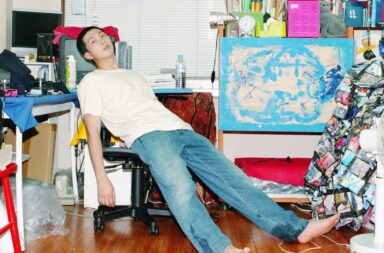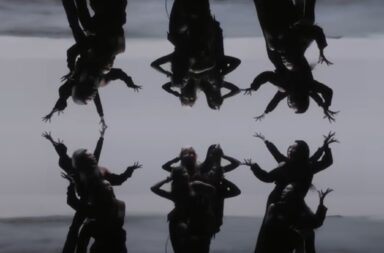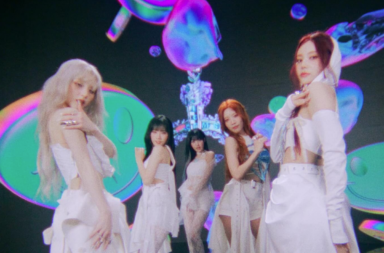2022 has kicked off with a strong selection of new dramas. Great production value, nuanced storytelling, and powerful performances are some of the factors contributing to our writers’ top picks. Anna, Sadia, and Janine discuss what influenced their choices for the best dramas of the year so far.
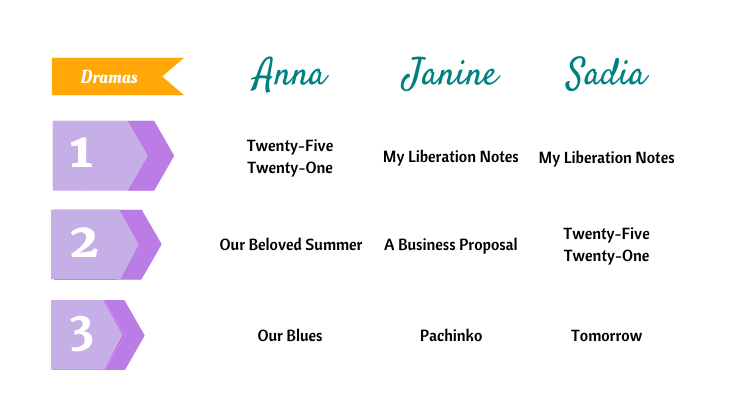
Janine: Looking at our lists, there seems to be a wealth of choices for dramalovers to pick from this year. I was spoiled for choice when deciding what to include in mine. I thought the first half of 2022 was packed with strong genre entries – my main concern was trying to find something that anyone could connect with as many of the series were of a high quality but niche appeal.
I ended up choosing dramas I think have appeal and interesting subject matter as well as a creative approach to storytelling. The cinematography and visual language of My Liberation Notes is one of the big reasons it topped my list.
The slice-of-life genre appeals to me but what set it apart from other bittersweet, atmospheric romances was the camera work. Notes makes exceptional use of natural scenery (a strength shared by Our Blues) and urban settings to beautifully illustrate the tone of show. The sibling relationships and the examination of ennui are well-executed by the cast. The writing is decent and the problems relatable but what makes me want to recommend this show to other people is how gorgeous every shot is.
How did you find the dramas on your lists?
Anna: I enjoyed the cinematography of My Liberation Notes as well, and it was truly a tough pick between this show and Our Blues – they both aired at the same time, both were helmed by famed screenwriters and were innovative in their approaches to storytelling.
The omnibus format of Our Blues was a daring experiment, considering that many K-dramas are loved for their deep character and relationship development. By shifting the limelight onto different pairings throughout the series, with each pair having 2-3 episodes, there was a risk that viewers would not care enough about the characters being featured because there was comparatively little time to get to know them.
Noh Hee Kyung pulled this off with aplomb, and while the format was a little difficult to get used to at first, by the end of the series, the Pureung community had my heart (and my tears), and I was fully invested in each of the separate plotlines that was introduced. The diversity of the social issues covered through this series, and the diversity of this cast itself was remarkable. The inclusion of Jung Eun-hye, a caricature artist and actress with Down Syndrome, as well as Lee So-byul, who is hearing-impaired, was fantastic to witness. Needless to say, with an A-List cast featuring Kim Woo-bin, Shin Min-ah and Lee Jung-eun, among many others, the acting was impeccable, especially in the many emotional scenes this cast had to pull off. All in all, a fantastic viewing experience.
I see that My Liberation Notes came in first on your list as well, Sadia, what did you enjoy about it?
Sadia: I fell in love with Mi-jeong (Kim Ji-won) and the ways she reinvents her love language. She learns the hard way from previous experiences and decides small changes in her outlook can allow her to accept others around her and love herself.I found the siblings’ dilemmas and their ways of learning about themselves relatable and quite comforting. Although their relationship isn’t the warmest, I found that their personal journeys are honest and heart-warming.
The drama didn’t rely on popular tropes to hold its own and kept me guessing as to what would happen. On a weekly basis I waited for Mr. Gu’s identity reveal, whether Mi-jeong can resolve her money issue or her work issues, will Gi-jeong (Lee El) find someone who appreciates her quirks? The build up is slow and well timed allowing the characters’ take their time in exploring their feelings and how to go about turning their lives around.
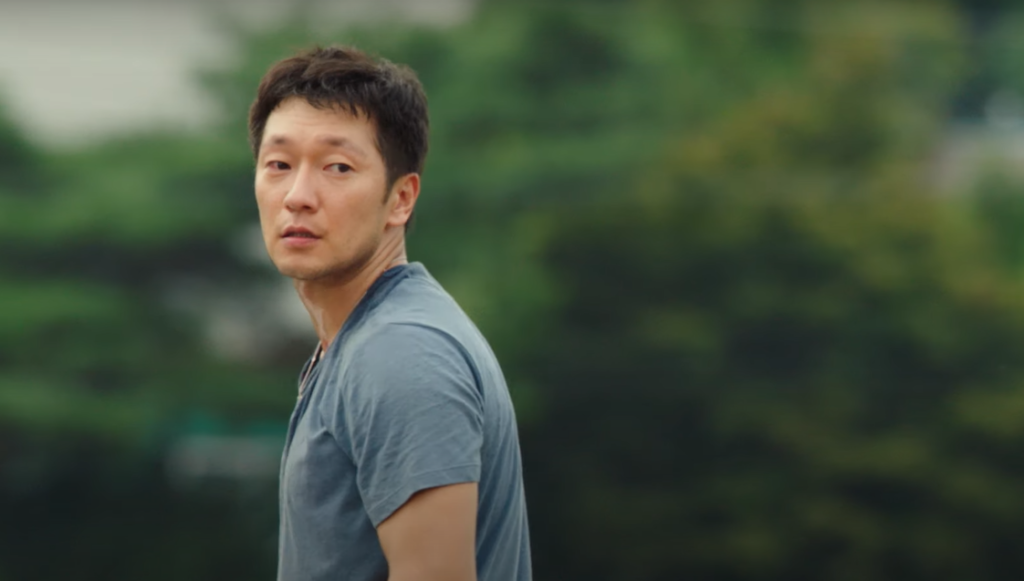
I also agree with Janine, the cinematography and visuals played a huge role in elevating the show. In many moments where the characters choose silence, but with the scenery and cinematography words aren’t necessary. It allowed for the audience’s thoughts to fill in the spaces and reflect on their thoughts as well.
I see that A Business Proposal has made it to your list, Janine. What did you enjoy about the drama?
Janine: A Business Proposal is one of the wackier romantic comedies to have been released this year. It will be a familiar concept to seasoned viewers, a Cinderella chaebol rom-com set in a workplace with many mistaken and hidden identity ploys. It’s packed with zany twists and the plot is way too convoluted to explain. For all my talk of dramas that can appeal to a variety of audiences, this one is best enjoyed by rom-com lovers.
Romantic comedies, at their best, remind me of Elizabethan dramatic conventions: tropes and devices like disguises are used to great theatrical effect, dialogue is sharp, and the performances are crucial. A Business Proposal has a witty throughline of the characters in the show watching a soap exploring the same plotlines they are facing. The play-within-a-play storytelling device is used to emphasise jokes, make meta commentary about romantic comedies, and show character development.
I also think the performances are a standout in this drama. Kim Se-Jeong is a master of physical comedy and never loses her charm. She’s got good chemistry with all of the cast and her co-stars, Ahn Hyo-Seop, Kim Min-Kyu, and Seol In-A. show why they’re at the top of their field. I really enjoyed watching this and I would recommend it for anyone needing something lighthearted.
Twenty Five Twenty One is a romance with some comedic elements but it’s so much more too. What drew you to this coming-of-age story?
Anna: In the process of watching this show, there were many times that it actually hurt to watch it, because of how poignant and true to life Twenty Five Twenty One got. I took my time with it and always ensured that I could watch it in a distraction-free environment so that I could properly savour all that this drama was giving to me.
It was my first time watching Kim Tae-ri and it was absolutely mindblowing that the actress is 31 in real life because she was so convincing as an 18 year-old. Her small mannerisms and her relatable reactions to the exuberance and embarrassment of youth – each of these endeared me to Na Hee-do as a character, and made her come alive. As someone who is also making this transition to adulthood myself, I resonated so much with her (even though I’m far from being an Olympic fencer), and was particularly moved by the subtle ways Hee-do grew throughout the course of the show.
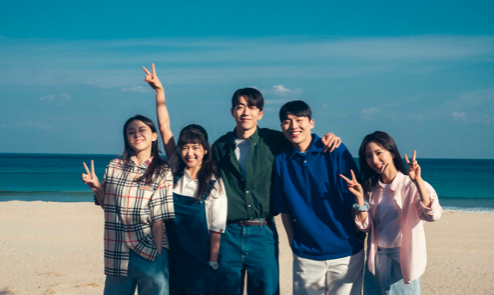
Nam Joo-hyuk, Bona, Choi Hyun-wook and Lee Joo-myung were fantastic in their roles as well – I enjoyed every moment the group spent together, and loved that they all ended up as well-rounded characters, with several impactful arcs and moments of growth. Twenty Five Twenty One tackled many interesting issues in a time period that is unfamiliar to me, which is probably why the stories always felt fresh, even though there was also a twinge of nostalgia. This is a show that I will remember for a long time, for its meaningful life lessons and depiction of growth.
What did you like about it, Sadia?
Sadia: I loved that it took me through a roller coaster of emotions each week, not many dramas can do that consistently. Coming-of-age dramas tend to follow similar plots and sometimes end up blending into the same thing. The way Twenty-five Twenty-one is set felt like we all were growing up with the cast and living through all their experiences too.
Each character felt familiar and often relatable, especially Na Hee-do. She’s bright, innocent and the right amount of chaotic for me. She comes across as happy-go-lucky, but nothing in her life comes easily. And the same goes for the whole group; each one of them is complex and struggling in their own way, yet somehow they manage to make the drama funny and fun to watch.
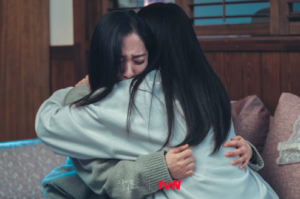
The drama nailed the portrayal of several women at the top of their game. It’s inspiring to watch each of them passionately working towards their dreams to be the best. I think that Twenty-five Twenty-one brilliantly spells out that with dedication and consistency anything is possible.
Now, enough of my corniness! I see Pachinko is on your list, Janine. I’m currently half-way through the book and I’m really enjoying it. What did you like about the drama?
Janine: Pachinko the novel was the first time I was exposed to the story, just like you Sadia – my best friend loved it so when the series dropped, I couldn’t miss it. Usually, this is not a genre that appeals to me but I felt a strong sense of fear of missing out.
Pachinko definitely lives up to some of my expectations: the directorial efforts by Kogonada and Justin Chon are artistic and interesting. The cinematography is incredible. The acting by Youn Yuh-jung is a masterclass in microexpressions and gravitas. The story is mostly faithfully adapted and I found the way it unfolds was engrossing.
As I have confessed, I am not a big fan of multi-generational sagas. I would recommend Pachinko highly for people who do enjoy these kinds of stories but also for those who want to watch stories about recent history. I also encourage people to read and learn about the Japanese colonial period of Korean history. It’s a drama with a very serious tone that addresses some very sensitive issues so I found myself thinking and reading a lot after each episode.
Tomorrow is another drama that references this period in history along with other controversial and sensitive social issues. What made it one your top picks, Sadia?
Sadia: Tomorrow touches on several social issues and, in my opinion, it approaches them well. Each new case came with a lot to unpack and work through and gave glimpses into the grim reapers on the case.
Initially, I was drawn to Tomorrow because of the spin on the grim reapers concept. It’s a very popular concept, but I haven’t come across grim reapers with an objective to save people’s lives before.
The main cast Kim Hee-seon, Rowoon and Yun Ji-on had great chemistry and I enjoyed their performances as the risk team. Although their job is emotionally demanding and continuously triggers their traumas, their work is always worth it. Each story of the crew’s past is also heartrending and heavy, but the writers did well in the pace that they unfolded and developed.
I must say, I found Tomorrow quite difficult to watch at times because of how dark the episodes got. It’s definitely not the easiest watch and not a drama I would recommend to everyone, as it can be triggering for some people.
I see Our Beloved Summer is second on your list, Anna. What drew you to this drama?
Anna: If first love could be captured in a drama, this was it. Many elements of this drama clicked for me, from beginning to end – its introspective script elevated a simple story into an enrapturing plot and stellar performances by Choi Woo-shik and Kim Da-mi got me fully invested in their characters. Its stunning cinematography and delicate directing were beautiful on their own, but when paired with a breathtaking soundtrack (which was always so effectively applied!)
Our Beloved Summer became a truly memorable masterpiece. The drama was consistent and cohesive throughout, and if you’ve been in K-dramaland long enough, you know that a truly satisfying ending is hard to find. This drama delivered that and more in its final episodes, solidifying its status as a rewatchable gem.
Looks like we’ve had quite the range of meaningful dramas and powerhouse performances in the past half-year – let’s see if this momentum continues!
